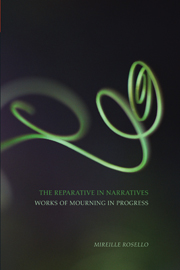Book contents
- Frontmatter
- Contents
- Acknowledgements
- Introduction: From the Debate on ‘Repentance’ to the Reparative in Memorial Narratives
- 1 Algerian Humour: ‘Jay Translating’ Words and Silences
- 2 René-Nicolas Ehni: Matricide and Deicide as Figures of Unforgivable Violence and Redemption during the Algerian War of Independence
- 3 The Truth of False Testimonies: False Brothers in Michael Haneke's Caché
- 4 Gisèle Halimi's Autobiographical and Legal Narratives: Doing to Trees what They Did to Me
- Conclusion: Repentance and Detective Fiction: Legal Powerlessness and the Power of Narratives
- Notes
- Bibliography
- Index
2 - René-Nicolas Ehni: Matricide and Deicide as Figures of Unforgivable Violence and Redemption during the Algerian War of Independence
- Frontmatter
- Contents
- Acknowledgements
- Introduction: From the Debate on ‘Repentance’ to the Reparative in Memorial Narratives
- 1 Algerian Humour: ‘Jay Translating’ Words and Silences
- 2 René-Nicolas Ehni: Matricide and Deicide as Figures of Unforgivable Violence and Redemption during the Algerian War of Independence
- 3 The Truth of False Testimonies: False Brothers in Michael Haneke's Caché
- 4 Gisèle Halimi's Autobiographical and Legal Narratives: Doing to Trees what They Did to Me
- Conclusion: Repentance and Detective Fiction: Legal Powerlessness and the Power of Narratives
- Notes
- Bibliography
- Index
Summary
L'important aujourd'hui n'est plus de dénoncer ou de dévoiler des secrets. Il est de comprendre et plus encore d'accepter. Non pas se résigner, mais accepter que ce passé, et peut-être plus encore la manière dont il a été géré après la guerre par la génération qui l'a subie, est révolu.
(Conan and Rousso, 1994)[Today, what matters is not to denounce or unveil secrets but to understand and above all to accept; not to resign ourselves but to accept that the past and perhaps more importantly the way in which it was processed after the war by the generation who experienced it, is behind us.]
Forgiveness is not, it should not be, normal, normative, normalising. It should remain exceptional and extraordinary, in the face of the impossible: as if it interrupted the ordinary course of historical temporality.
(Derrida, 2001, 40)René-Nicolas Ehni is not Algerian. He was neither a harki nor a moudjahid. He was never a pied noir. He was not one of the French ‘porteurs de valises’, who helped the NLF in Europe. And he is not a child of Algerian immigrants. As a result, his novels and plays may well have remained invisible to critics interested in the way in which France remembers the war that led to Algeria's independence. Yet, at the beginning of the twenty-first century, two reasons may be invoked to justify Ehni's inclusion into a reconfigured postcolonial canon. And interestingly, they may well seem contradictory at first.
- Type
- Chapter
- Information
- The Reparative in NarrativesWorks of Mourning in Progress, pp. 63 - 100Publisher: Liverpool University PressPrint publication year: 2010



